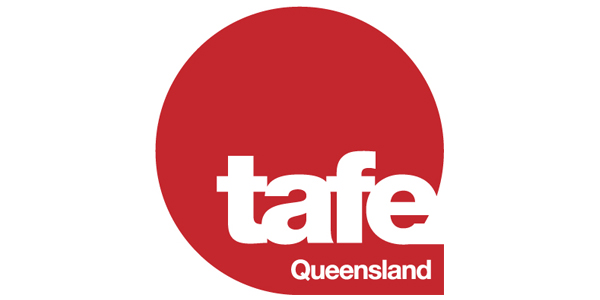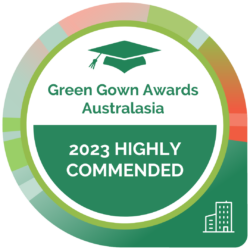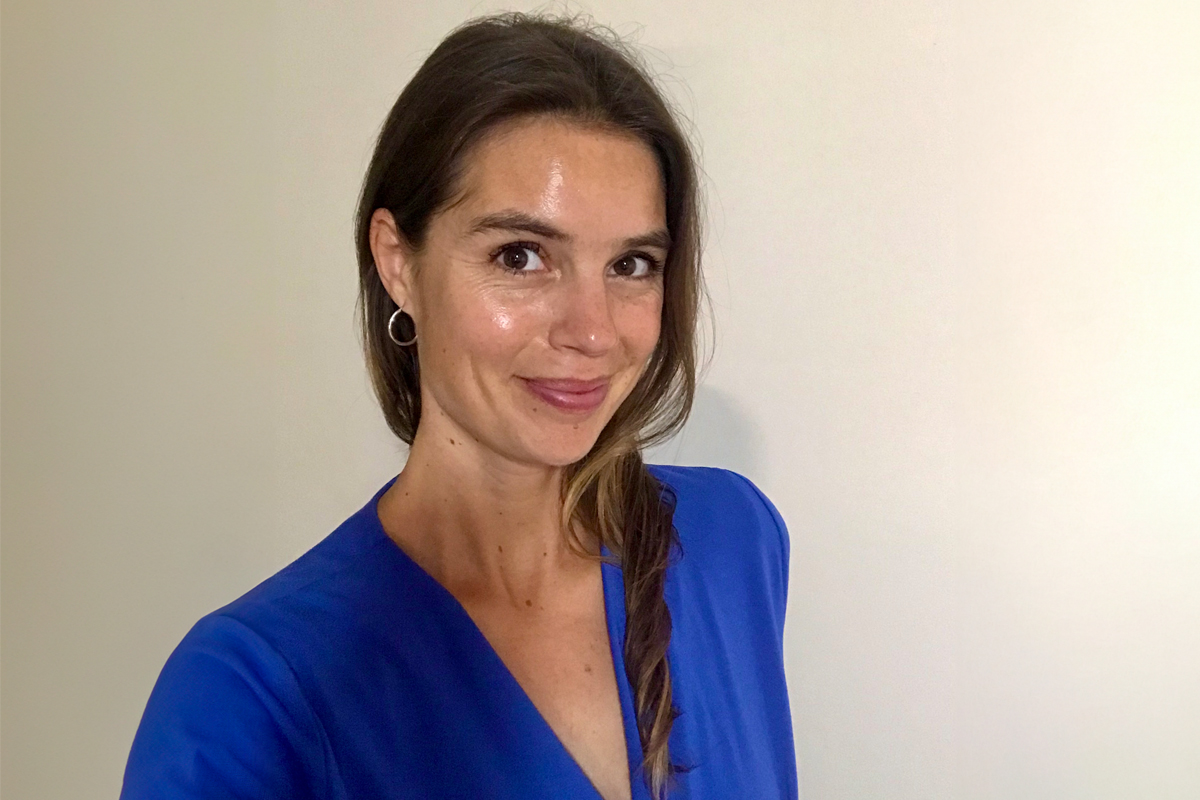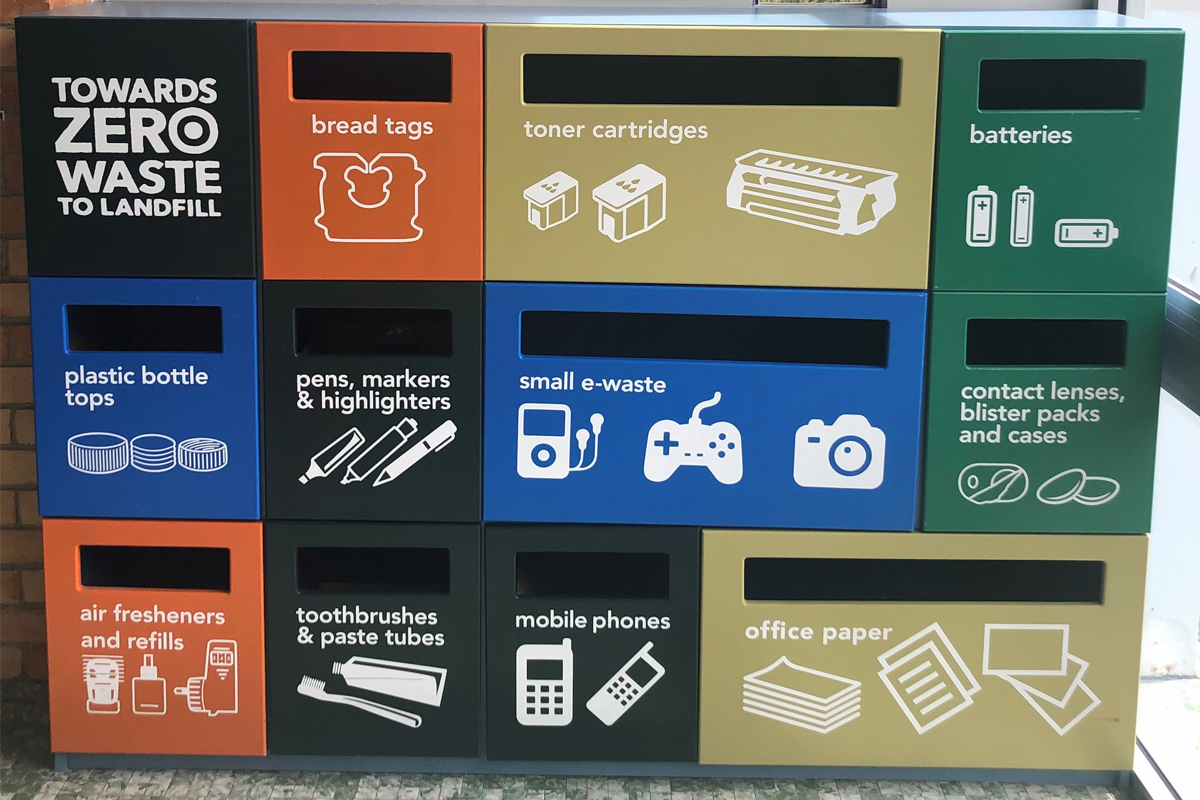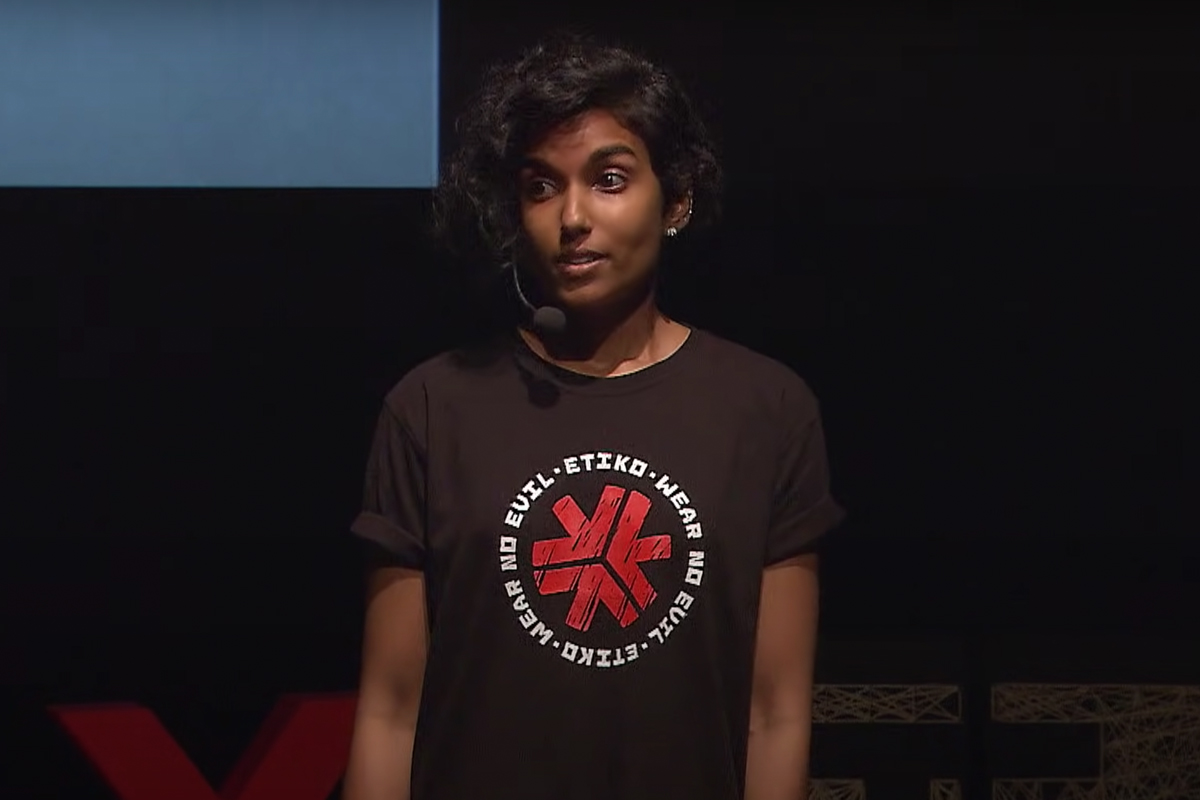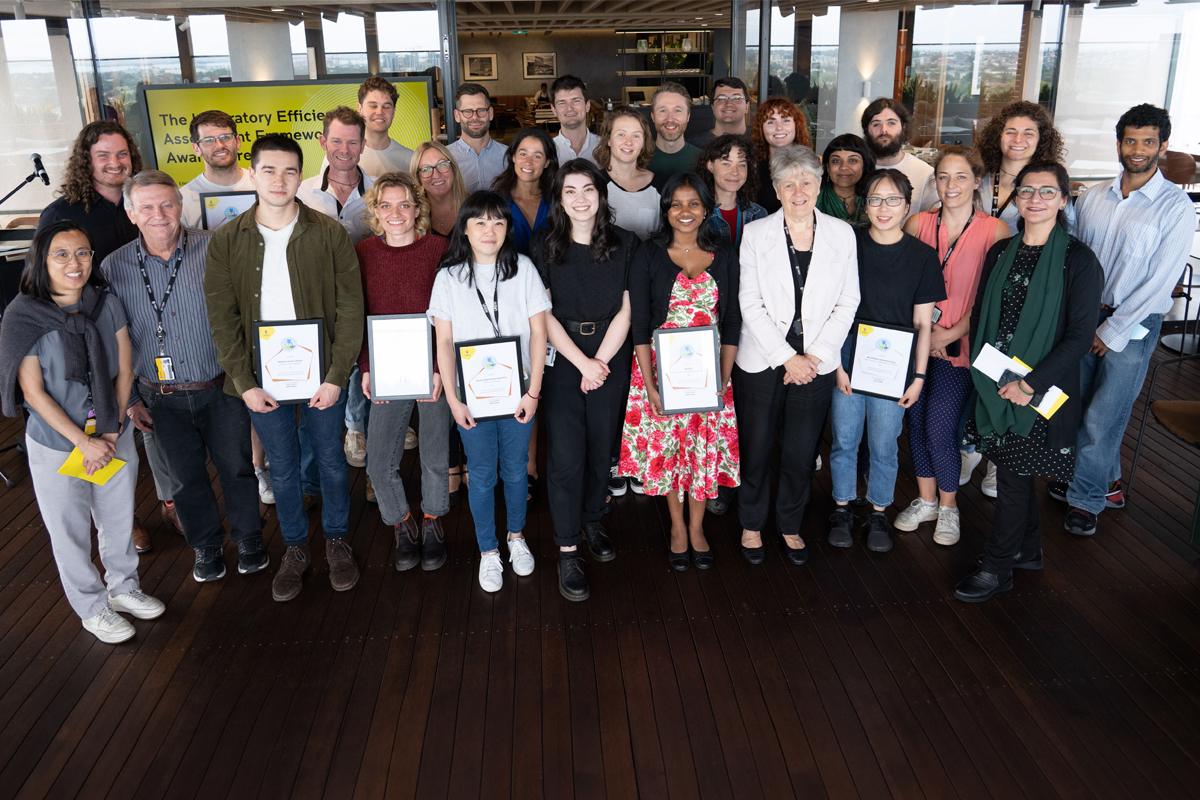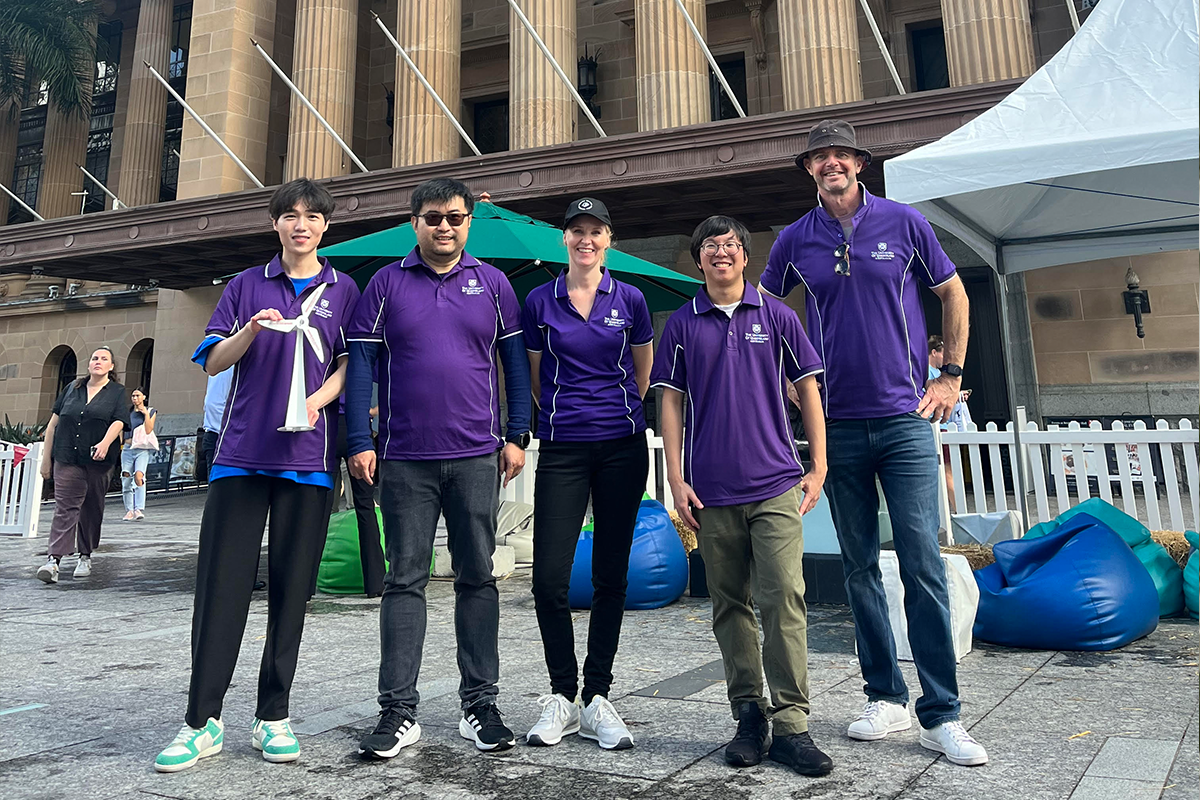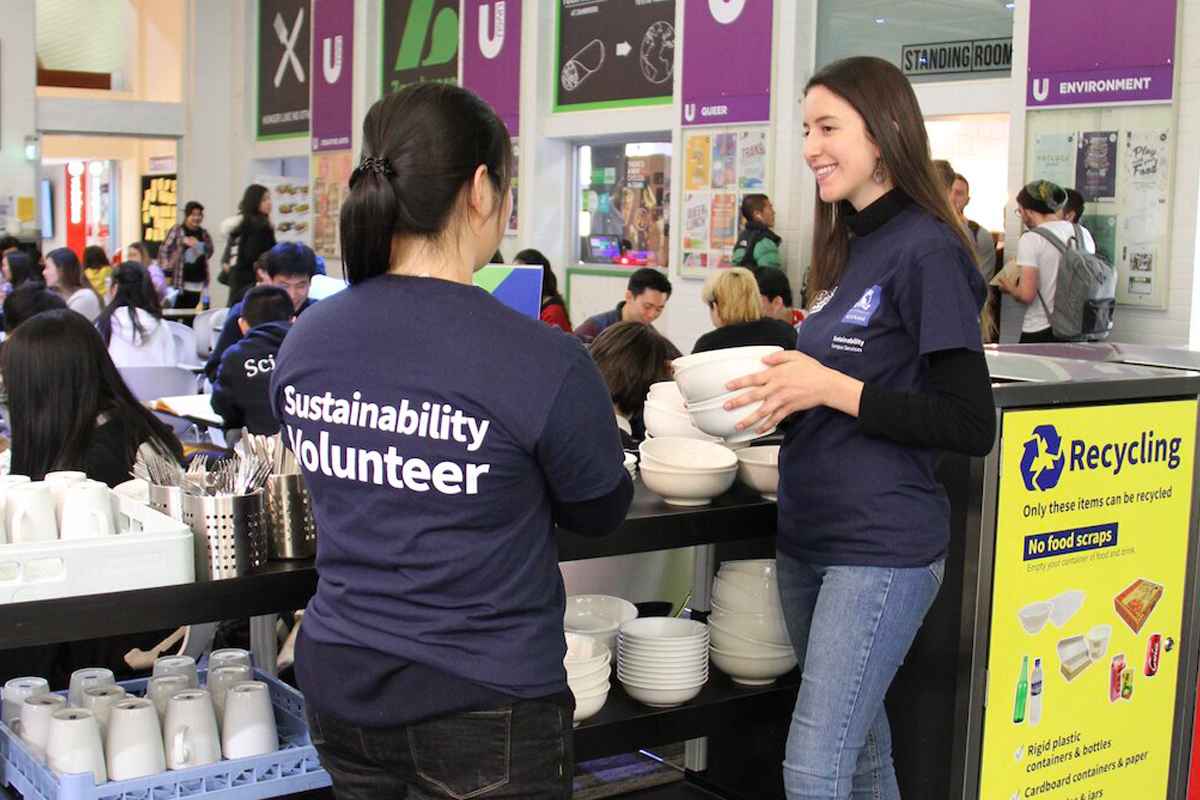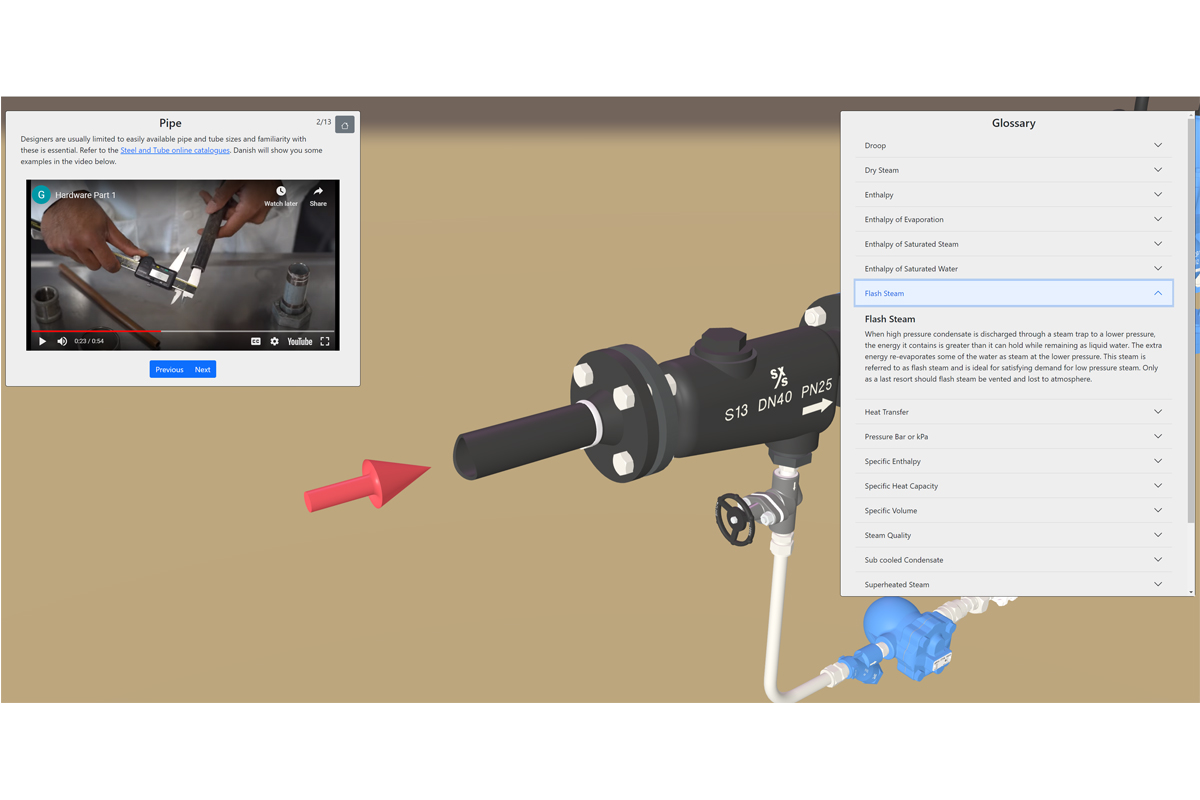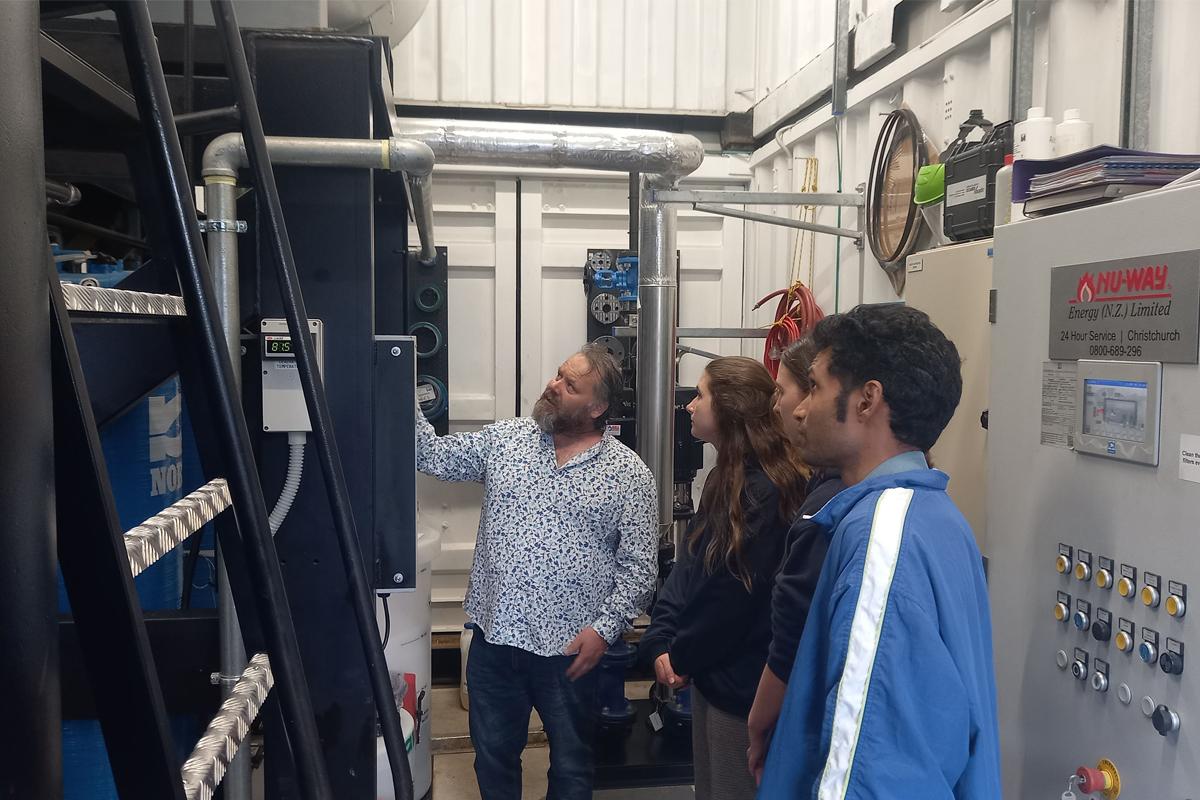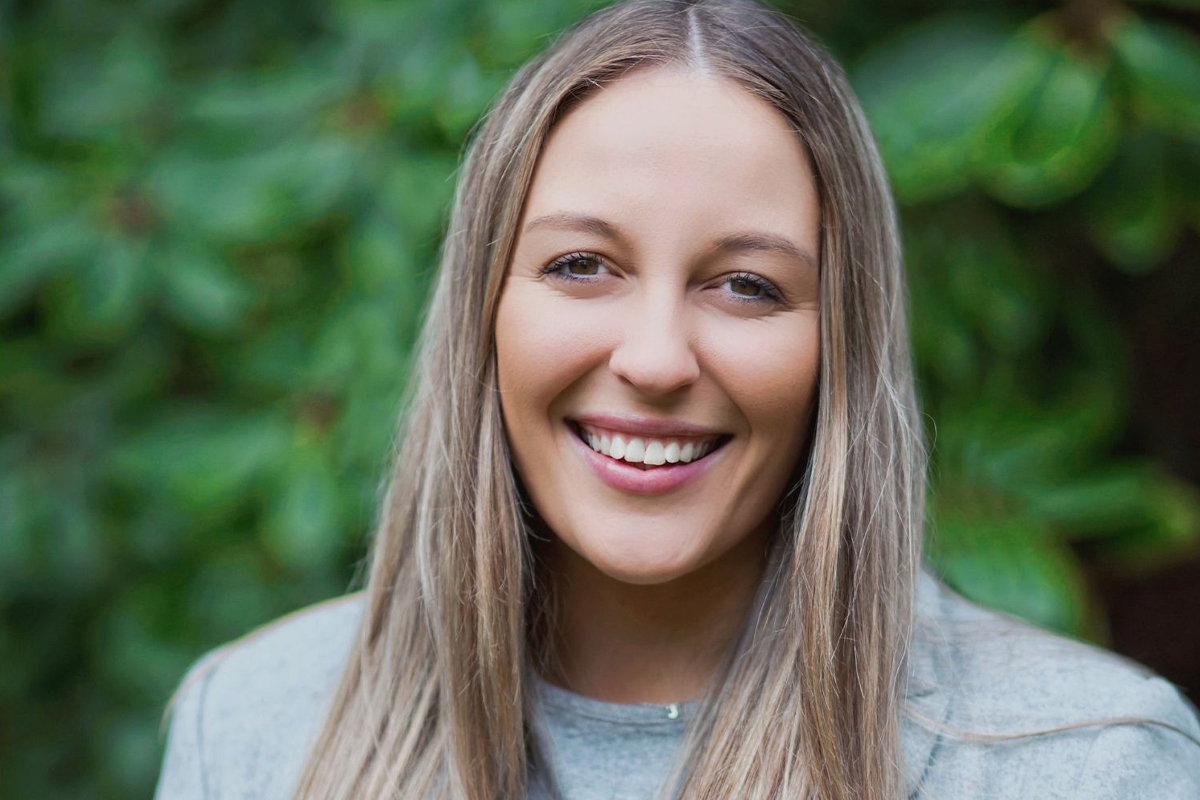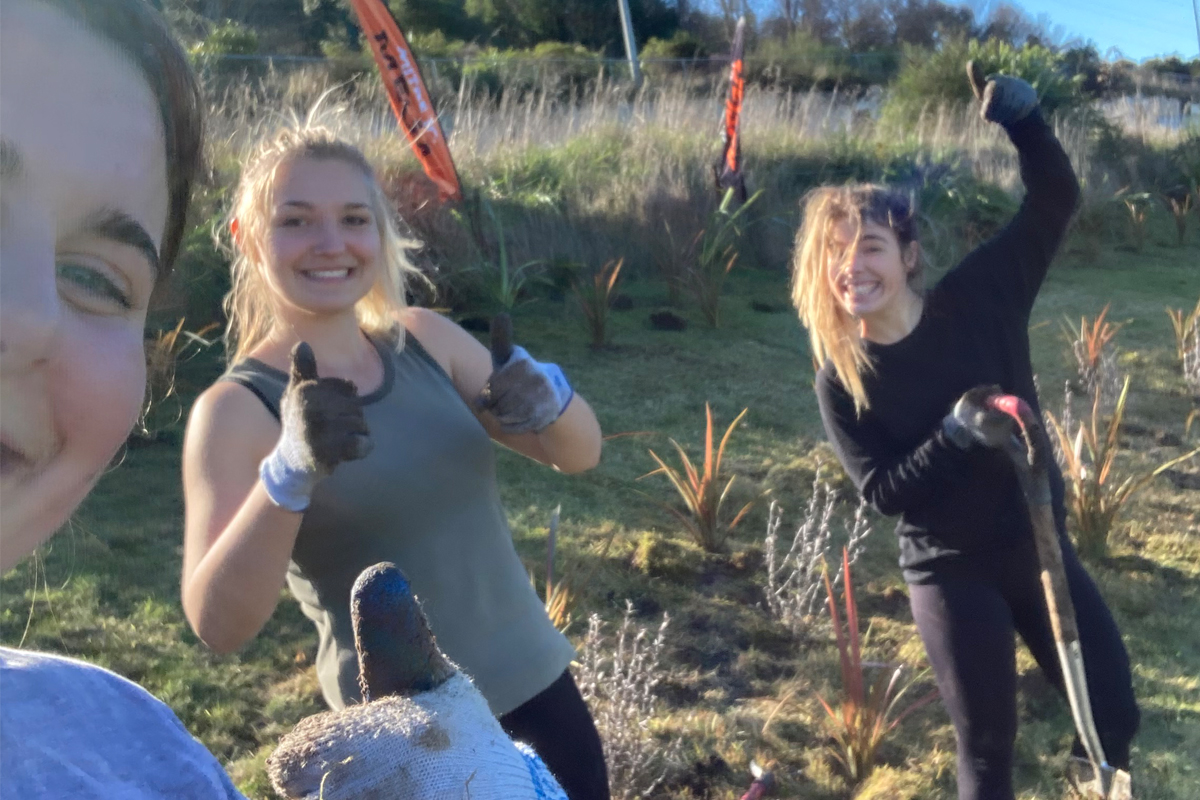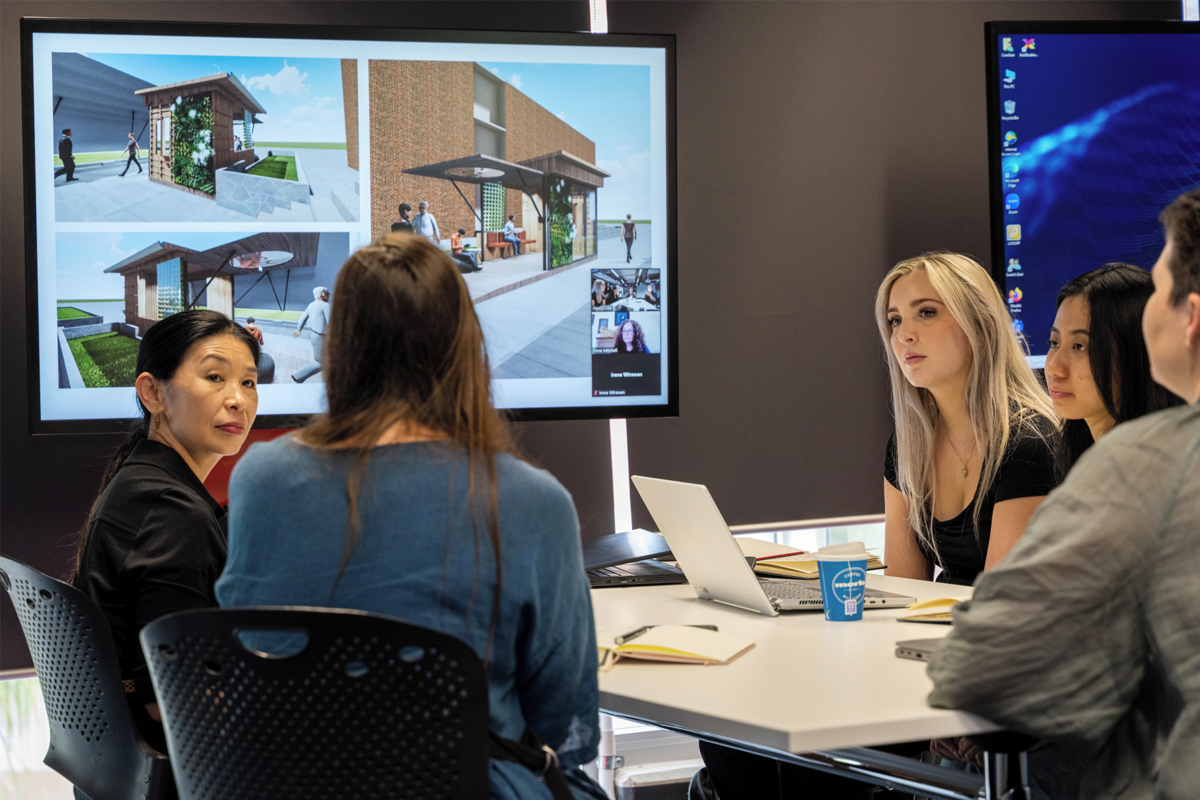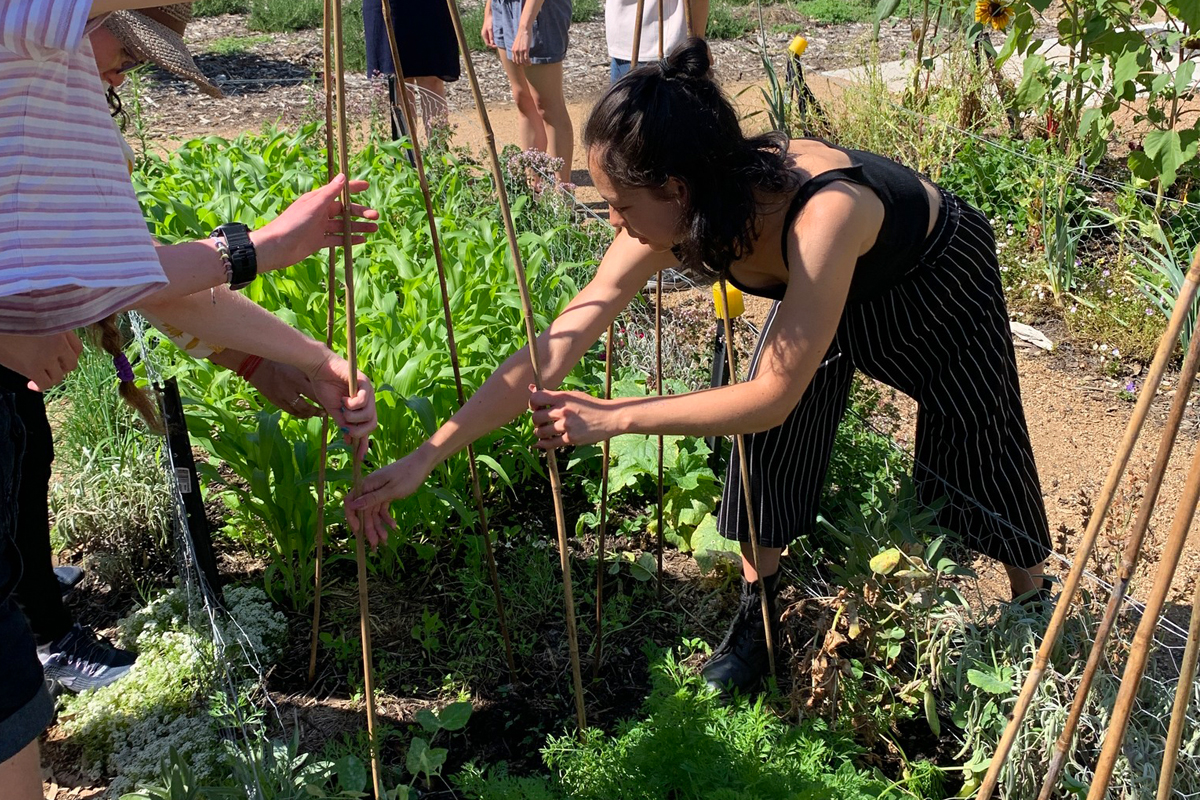Next Generation Learning & Skills/Winners category
Sustainability underpins everything we do at Robina Campus. Key to our organisational culture, sustainability is embedded into our campus operations, academic programs, and forms a crucial part of our student and staff development programs. We have adopted the broader definition of sustainability to not only protect the planet but improve the lives and prospects of our students, staff and community. In embedding sustainability into all that we do, Robina Campus can demonstrate:
- effective integration of sustainability principles into every unit of every course
- the use of active sustainability-related projects including work-based learning initiatives
- the introduction of sustainability short courses for the local community
- embedding sustainability practices into our daily operations.
Prior to embedding sustainability into all courses, we identified that only 10 of the 76 courses offered sustainability focused units. Prior to the opening of the campus, a professional learning program was facilitated over 9 months to assist our educators embed sustainability knowledge and practices into all aspects of course delivery, assessment and campus community life. Each individual course unit has been reviewed to align with the Sustainable Development Goals (SDGs), and to understand how commitment can be demonstrated in training delivery. This included class times, operations and maximising digital solutions in teaching and assessment. By embedding sustainability and applying industry relevant standards and practices into all 76 courses, our educators can ‘walk the walk’ and ‘talk the talk’ with their students. Supporting educators to embed sustainability across all program areas delivered at Robina, ensures that every student is fully immersed into the sustainability culture of the campus.
To maximise work-based learning initiatives, Robina Campus operates 5 ‘live training’ venues which are open to the community for commercial services. The venues include a restaurant, café, event centre, hairdressing, barber, and beauty salons, and a fitness centre. The live training environments provide immersive learning, particularly with an ecofriendly lens and ensures students graduate with not only the technical skill requirements of the job, but a broader understanding of how to apply the SDGs within a profitable business. The venues are operated by TAFE Queensland for profit, with staff employed to run the facilities and manage training in the live environment. This model ensures 100% commitment to the SDGs and the ability to positively influence training outcomes for our students.
To connect closely with our community, we have developed 26 sustainability-focused short courses including 2 bundles of courses, ‘Introduction to Sustainability Living’ and ‘Complete Beekeeping’. Engaging with our local community through short courses, live training venues via the commercial services, and developing partnerships with local suppliers and government has been key to supporting our sustainability initiatives such as:
- Our collaboration with ‘We are Behive’ who inspire recycling and a circular economy through delivering regular workshops, their recycling app, and a campus Behive Box for recycling items not permitted in typical recycling bins.
- Our partnership with the City of Gold Coast Council to implement our active transportation strategy and workshop sessions on water and waste.
- Working closely with Raba Urban Farm which takes our organic waste compost, and encourages staff and student participation on the farm to learn about growing food in our allocated garden area.
The embedding of sustainability practices into our daily operations commenced with the construction of the Campus. The build and fit out was based on thorough research, planning, development, design and a 3 year project plan. All commercial contracts and procurement processes were assessed in order to access ethical and carbon neutral suppliers where possible. Sustainable raw materials, energy efficient resources, and recycled products/materials were sourced and used for the building and fit out, with tenderers encouraged to submit sustainable product innovations and ideas. Sustainability has been integrated into all aspects of campus design and operations, resulting in flexible spaces and facilities enabled by state-of-the-art technology, transformative service delivery models and onsite live training facilities. The result is a five-level, technology enabled, multipurpose training space with breakout rooms, collaboration booths and student areas. Effective waste management is a feature of the campus.
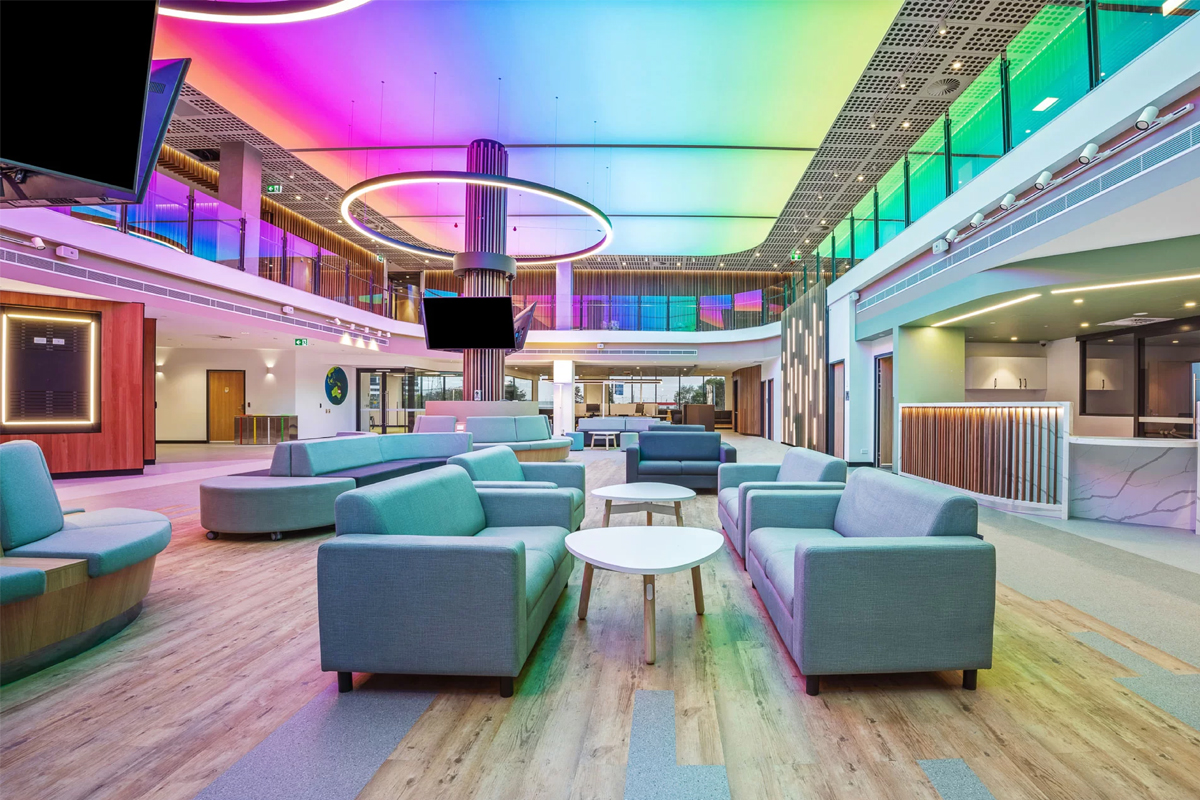
Environmental and social benefits
Robina Campus has numerous benefits for professional and technical education which includes serving as a place for students, community, and businesses to connect, supporting good health and wellbeing, and encouraging sustainability-based partnerships. Sustainable procurement practices and rigorous examination of supply chains were implemented, ensuring products were sustainably and ethically sourced. Raw materials, energy, resources, and recycled products were also sustainably sourced and used in building and fit-out. Solar and energy-efficient equipment were utilised, and waste minimisation strategies including minimal use of paper and reduced plastic usage, were implemented. In summary, key benefits have included:
- Creation of a shared campus vision and culture.
- Informed students and staff about the SDGs which has been key to achieving health and wellbeing, gender equality and inclusivity outcomes.
- Sustainability embedded into all courses.
- Flexible learning spaces created with the latest technology and modern furniture layouts.
- Student work-based training opportunities provided with training and experience leading to jobs.
- The BYOD (bring your own device) approach making the transition between campus and home study easier, and reducing technology waste.
- Implementation of rigorous sustainable procurement practices and examination of supply chains to ensure suppliers source their products sustainably and ethically.
- Sourcing of sustainable raw materials, energy, resources and recycled products/materials for use in the building and fit-out.
- Use of solar and energy efficient equipment.
- Implementation of ‘keep cup’ programs, and using locally sourced and in-season products.
- Waste minimisation strategies in place with recycling stations and separation bins across the campus.
- Minimal use of paper.
- Minimal use of plastic with most products being biodegradable and compostable.
- Re-usable water bottles with hydration stations.
- The use of a food composter to reduce landfill by 7 tonnes per year, while delivering 1.5 tonnes of soil conditioner.
- Partnering with Sustainable Salons, where used plastics and metals from hair and beauty classes are upcycled. Hair is also collected to make hair brooms to clean up ocean oil spills.
- An active transportation plan to incentivise the use of public transportation, bikes, scooters, walking or running to the campus, including end of trip facilities (toilets, showers and lockers).
- Partnering with LIME bikes for discounted hire and the establishment of a 20-bike station.
- Ten charging stations for electric vehicles and bike/scooter facilities including secure storage and repair stations.
- Innovative signage which encourages students to avoid carbon-emitting practices, such as using elevators and encourages using the stairs.
- Capturing baseline data for the ‘STARS’ rating system for an accreditation application.
Leadership and engagement
Our approach is distinctive in several ways:
- Embedding of sustainability across all courses – each individual course unit has been reviewed to align with the SDGs and understand how commitment can be demonstrated in training delivery. Rather than offering a few dedicated sustainability courses, Robina Campus embeds sustainability principles and practices across all of its programs. This means that students in every discipline, from English language courses to hospitality management, are exposed to sustainable practices and encouraged to incorporate them into their work.
- Focus on practical learning – Robina Campus runs 5 live training venues which are open to the community as commercial services. The emphasises is on practical learning and real-world applications of sustainability principles in a commercial environment. Students work on sustainability projects in partnership with local businesses and community organisations, gaining hands-on experience and building meaningful connections in the community.
- Technology enabled active learning (TEAL) spaces – creating learning spaces that are accessible, inclusive and support equitable quality education has been critical to our success. This has been achieved through our use of technology-enabled learning spaces that are flexible and multi-purpose, including movable furniture, innovative desks, and sit/stand desks that don’t require electricity. There are screens on multiple walls, with no ‘front of the class’ delivery required, and teachers are trained to reconfigure and use the spaces most effectively. Roof-mounted cameras allow for live streaming of lessons, and teachers are equipped with digital devices and training that allows them to move around the room, engage in flexible delivery, and stream wirelessly to multiple screens within the learning space.
- Innovative sustainable practices on campus – Robina Campus leads by example, implementing a range of innovative sustainable practices on campus. For example, the campus has a solar power system and a rainwater harvesting system.
- Strong community engagement – Robina Campus works closely with local businesses, government agencies, and community groups to promote sustainability and share knowledge and resources. The campus also hosts a range of sustainability-focused events and workshops that are open to the public including weekly lunchbox sessions for staff and students.
Significance to the sector
What makes our project distinctive is how we have planned and implemented a totally different approach. We have embraced sustainability as a core value and incorporated it into every aspect of the build, fit-out, procurement, curriculum, operations, governance and culture. The planning and design for this project commenced three (3) years before the campus was to open. Having the right governance structures in place throughout the project was critical to the success of the planning, design and construction of the campus. A Steering Committee was established with five (5) sub-committees to oversee the project development. Each committee was chaired by a person on the overarching Steering Committee.
Robina was chosen as the location as it was identified as a key growth area with population predicted to rise by 36% by 2041. The development of this campus responds to the future needs of the area for training opportunities and skilled workers. The building is located in the heart of Robina’s growing corporate community. It is in an intelligently designed business park surrounded by world class dining, sporting, shopping, health and education facilities and is within walking distance to the Robina Town Centre and train station.
The development was based on a unique partnership between the TAFE Queensland Board (statutory body) and Queensland and Australian Governments to create a fit-for-purpose facility to meet the growing needs of the community in which it is based. TAFE Queensland worked with the developer to secure flexible commercial arrangements for the building, based on a long-term lease with options up to 30 years. This modern approach to infrastructure development has many benefits for VET. In the past, new buildings have been directly owned and can become a burden over time in terms of maintenance and flexibility to change delivery locations based on student and community needs.
Consultation and collaboration with the local community, businesses and other stakeholders has been a critical part of the sustainable design of the campus. Through working with local businesses including aged care, hospitality, fitness, education providers, charitable organisations and government at all levels, the campus has been aligned to the training and business opportunities in the community and region in which it is located.
Wider societal impact
The embedded sustainability approach implemented by Robina Campus has added value to the local community and is also a study of best practice at a wider societal level. The Campus has provided a space for learning and skill development, all with sustainability mapped and embedded into delivery.
Benefits include:
- Reduced carbon emissions and other environmental impacts.
- Increased employment opportunities in the green sector.
- Improved quality of life for individuals through the creation of meaningful and fulfilling work.
- Responsible and accountable leaders in the green economy.
- Active, informed and engaged students, staff and community.
- Students are equipped with the right support and skills so that they have the skills to perform the new jobs available.
- Teachers with the skills to effectively teach, coach and mentor young people entering the labour market.
- A local, green economy flourishing with well trained teachers and a highly skilled workforce.
- Improved environmental outcomes through the use of sustainable practices in the workplace.
- People, including staff and students, are empowered to share their knowledge across communities.
- Specialist short courses for community members focused on sustainable practices.
- Increased economic growth, competitiveness and productivity through the development of a skilled green workforce.
Learner/Graduate employer impact
TAFE Queensland is known for its emphasis on practical education and hands-on learning. This focus on practicality prepares graduates for the workplace and enables them to contribute effectively from day one. Graduates from the Robina Campus add additional value to employers by being educated at live training venues with strong industry connections. Through internships, work placements and industry collaborations, students have opportunities to network and build relationships with potential employers. This connection with industry and training at live sites enhances our graduates’ employability as employers value candidates with relevant industry experience.
Robina Campus plays a significant role in promoting green skilling and contributing to the green transition in Australia, equipping our graduates with the skills and understanding needed for a sustainable future. Our embedded sustainability approach connects educators, students, community, government, and industry to promote sustainability through various practices including:
- Weekly lunchbox sessions to inform staff and students about community initiatives such as Containers for Change, Envirobank, Behive, the Raba Urban Farm, and our active transport approach.
- Events focused on awareness raising such as Earth Week, Harmony Day, Wildlife Day and Eucalyptus Day.
- Bring Your Own Device (BYOD) promotion, use of keep items connected to a rewards program, a no plastic policy, refillable containers, water rehydration stations and organic composting onsite.
- Use of TV screens and billboards to promote and inform our community about the energy-efficient technologies in use such as solar, waste reduction strategies, water conservation measures and recycling programs.
Through these efforts, Robina Campus and TAFE Queensland contribute to the development of a skilled workforce that helps drive the green transition in Australia. By providing quality green skills training, fostering industry partnerships, promoting sustainable practices and engaging with the community, we are playing a vital role in preparing a workforce that has immediate impact and value to employers.
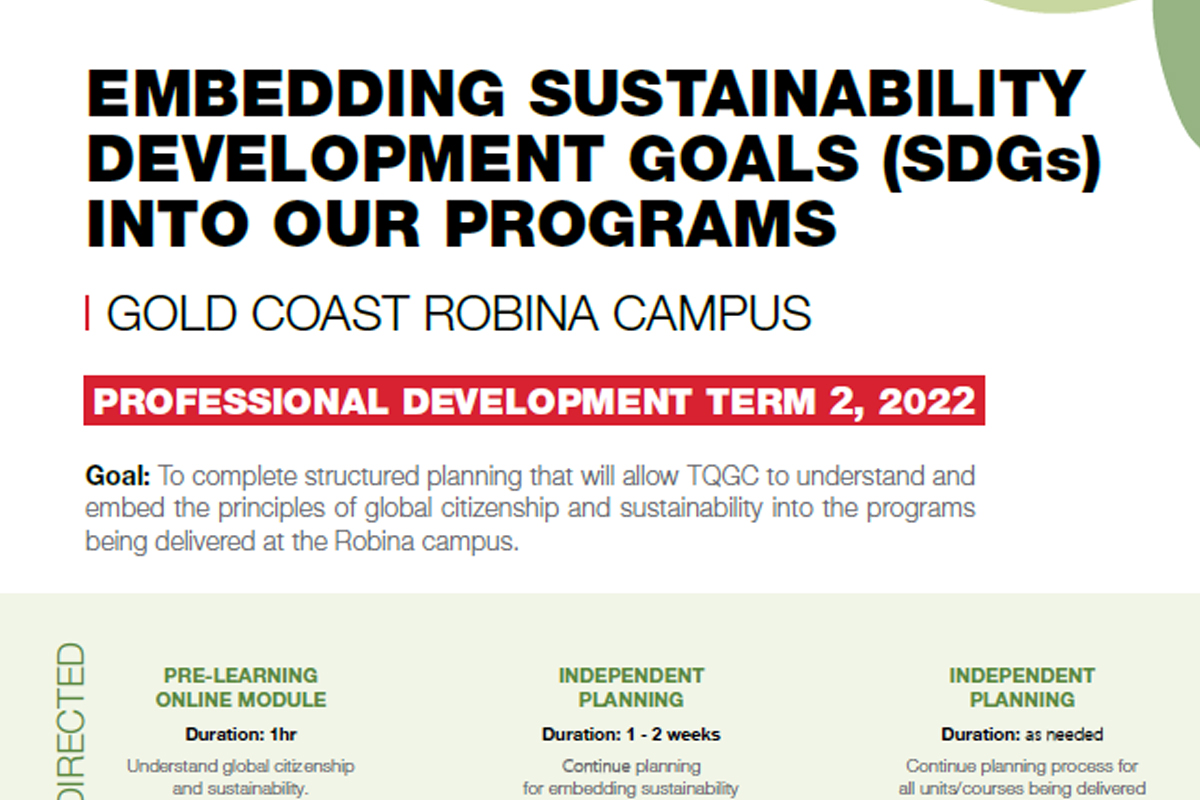
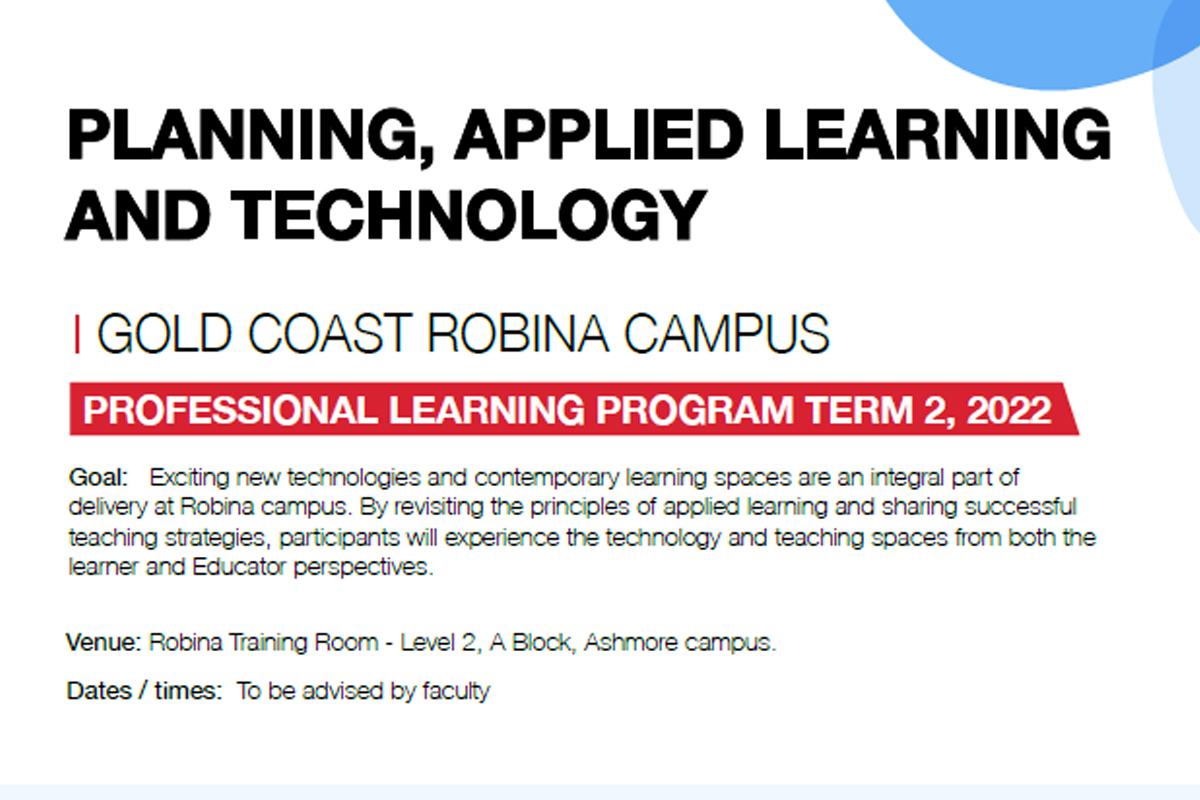
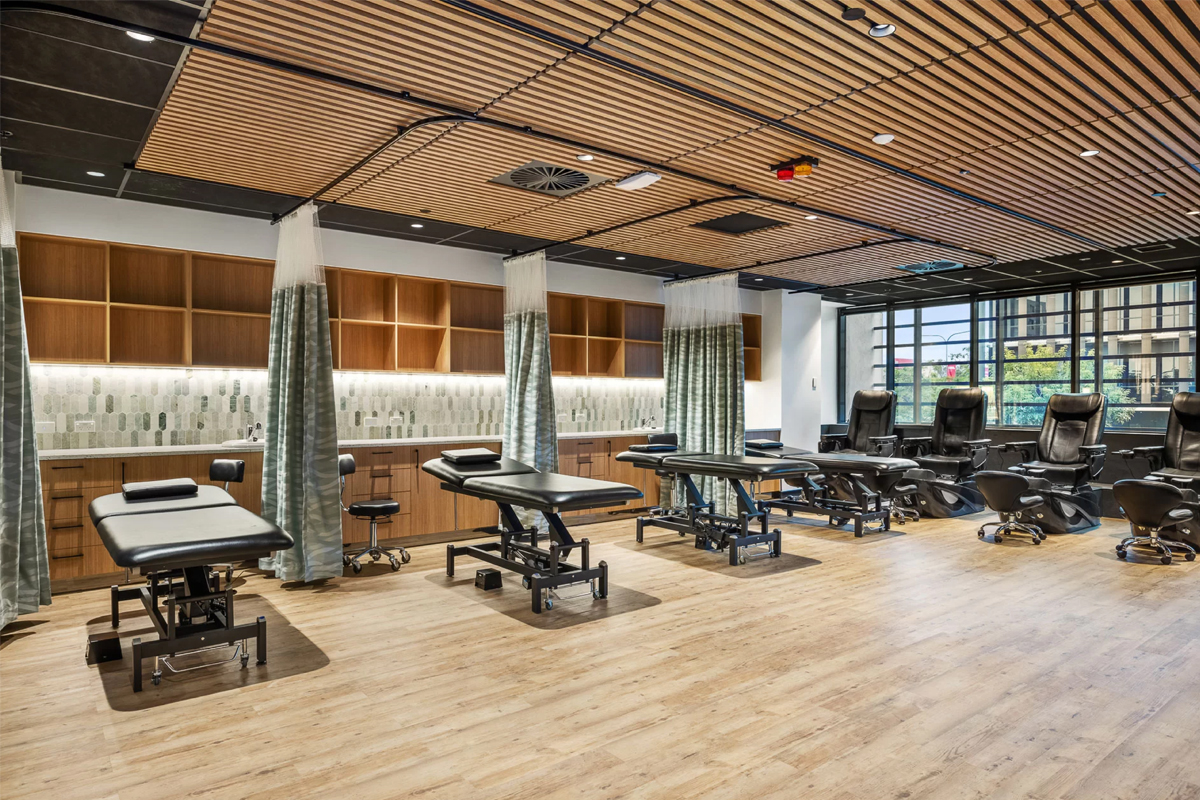
Top 3 learnings
Category finalists
Climate Action/Winners
Climate Action/Winners
Benefitting Society/Winners
Benefitting Society/Winners
Creating Impact/Winners
Creating Impact/Winners
Sustainability Champion – Student/Winners
Sustainability Champion – Student/Winners
Creating Impact/Winners
Creating Impact/Winners
Leading the Circular Economy/Winners
Leading the Circular Economy/Winners
Sustainability Champion – Student/Winners
Sustainability Champion – Student/Winners
Creating Impact/Winners
Creating Impact/Winners
Diversity, Equity & Inclusion in Sustainability/Winners
Diversity, Equity & Inclusion in Sustainability/Winners
Next Generation Learning & Skills/Winners
Next Generation Learning & Skills/Winners
Sustainability Institution of the Year/Winners
Sustainability Institution of the Year/Winners
Leading the Circular Economy/Winners
Leading the Circular Economy/Winners
Next Generation Learning & Skills
Next Generation Learning & Skills
Next Generation Learning & Skills/Winners
Next Generation Learning & Skills/Winners
Sustainability Champion – Staff/Winners
Sustainability Champion – Staff/Winners
Sustainability Champion – Student/Winners
Sustainability Champion – Student/Winners
Sustainability Champion – Staff/Winners
Sustainability Champion – Staff/Winners
Sustainability Champion – Staff/Winners
Sustainability Champion – Staff/Winners
Student Engagement/Winners
Student Engagement/Winners
Past winners
Benefitting Society/Winners
Benefitting Society/Winners
Diversity, Equity & Inclusion in Sustainability/Winners
Diversity, Equity & Inclusion in Sustainability/Winners
Climate Action/Winners
Climate Action/Winners
Sustainability Institution of the Year/Winners
Sustainability Institution of the Year/Winners
Creating Impact/Winners
Creating Impact/Winners
Creating Impact/Winners
Creating Impact/Winners
Top 3 learnings
Next Generation Learning & Skills/Winners category
Sustainability underpins everything we do at Robina Campus. Key to our organisational culture, sustainability is embedded into our campus operations, academic programs, and forms a crucial part of our student and staff development programs. We have adopted the broader definition of sustainability to not only protect the planet but improve the lives and prospects of our students, staff and community. In embedding sustainability into all that we do, Robina Campus can demonstrate:
- effective integration of sustainability principles into every unit of every course
- the use of active sustainability-related projects including work-based learning initiatives
- the introduction of sustainability short courses for the local community
- embedding sustainability practices into our daily operations.
Prior to embedding sustainability into all courses, we identified that only 10 of the 76 courses offered sustainability focused units. Prior to the opening of the campus, a professional learning program was facilitated over 9 months to assist our educators embed sustainability knowledge and practices into all aspects of course delivery, assessment and campus community life. Each individual course unit has been reviewed to align with the Sustainable Development Goals (SDGs), and to understand how commitment can be demonstrated in training delivery. This included class times, operations and maximising digital solutions in teaching and assessment. By embedding sustainability and applying industry relevant standards and practices into all 76 courses, our educators can ‘walk the walk’ and ‘talk the talk’ with their students. Supporting educators to embed sustainability across all program areas delivered at Robina, ensures that every student is fully immersed into the sustainability culture of the campus.
To maximise work-based learning initiatives, Robina Campus operates 5 ‘live training’ venues which are open to the community for commercial services. The venues include a restaurant, café, event centre, hairdressing, barber, and beauty salons, and a fitness centre. The live training environments provide immersive learning, particularly with an ecofriendly lens and ensures students graduate with not only the technical skill requirements of the job, but a broader understanding of how to apply the SDGs within a profitable business. The venues are operated by TAFE Queensland for profit, with staff employed to run the facilities and manage training in the live environment. This model ensures 100% commitment to the SDGs and the ability to positively influence training outcomes for our students.
To connect closely with our community, we have developed 26 sustainability-focused short courses including 2 bundles of courses, ‘Introduction to Sustainability Living’ and ‘Complete Beekeeping’. Engaging with our local community through short courses, live training venues via the commercial services, and developing partnerships with local suppliers and government has been key to supporting our sustainability initiatives such as:
- Our collaboration with ‘We are Behive’ who inspire recycling and a circular economy through delivering regular workshops, their recycling app, and a campus Behive Box for recycling items not permitted in typical recycling bins.
- Our partnership with the City of Gold Coast Council to implement our active transportation strategy and workshop sessions on water and waste.
- Working closely with Raba Urban Farm which takes our organic waste compost, and encourages staff and student participation on the farm to learn about growing food in our allocated garden area.
The embedding of sustainability practices into our daily operations commenced with the construction of the Campus. The build and fit out was based on thorough research, planning, development, design and a 3 year project plan. All commercial contracts and procurement processes were assessed in order to access ethical and carbon neutral suppliers where possible. Sustainable raw materials, energy efficient resources, and recycled products/materials were sourced and used for the building and fit out, with tenderers encouraged to submit sustainable product innovations and ideas. Sustainability has been integrated into all aspects of campus design and operations, resulting in flexible spaces and facilities enabled by state-of-the-art technology, transformative service delivery models and onsite live training facilities. The result is a five-level, technology enabled, multipurpose training space with breakout rooms, collaboration booths and student areas. Effective waste management is a feature of the campus.

Environmental and social benefits
Robina Campus has numerous benefits for professional and technical education which includes serving as a place for students, community, and businesses to connect, supporting good health and wellbeing, and encouraging sustainability-based partnerships. Sustainable procurement practices and rigorous examination of supply chains were implemented, ensuring products were sustainably and ethically sourced. Raw materials, energy, resources, and recycled products were also sustainably sourced and used in building and fit-out. Solar and energy-efficient equipment were utilised, and waste minimisation strategies including minimal use of paper and reduced plastic usage, were implemented. In summary, key benefits have included:
- Creation of a shared campus vision and culture.
- Informed students and staff about the SDGs which has been key to achieving health and wellbeing, gender equality and inclusivity outcomes.
- Sustainability embedded into all courses.
- Flexible learning spaces created with the latest technology and modern furniture layouts.
- Student work-based training opportunities provided with training and experience leading to jobs.
- The BYOD (bring your own device) approach making the transition between campus and home study easier, and reducing technology waste.
- Implementation of rigorous sustainable procurement practices and examination of supply chains to ensure suppliers source their products sustainably and ethically.
- Sourcing of sustainable raw materials, energy, resources and recycled products/materials for use in the building and fit-out.
- Use of solar and energy efficient equipment.
- Implementation of ‘keep cup’ programs, and using locally sourced and in-season products.
- Waste minimisation strategies in place with recycling stations and separation bins across the campus.
- Minimal use of paper.
- Minimal use of plastic with most products being biodegradable and compostable.
- Re-usable water bottles with hydration stations.
- The use of a food composter to reduce landfill by 7 tonnes per year, while delivering 1.5 tonnes of soil conditioner.
- Partnering with Sustainable Salons, where used plastics and metals from hair and beauty classes are upcycled. Hair is also collected to make hair brooms to clean up ocean oil spills.
- An active transportation plan to incentivise the use of public transportation, bikes, scooters, walking or running to the campus, including end of trip facilities (toilets, showers and lockers).
- Partnering with LIME bikes for discounted hire and the establishment of a 20-bike station.
- Ten charging stations for electric vehicles and bike/scooter facilities including secure storage and repair stations.
- Innovative signage which encourages students to avoid carbon-emitting practices, such as using elevators and encourages using the stairs.
- Capturing baseline data for the ‘STARS’ rating system for an accreditation application.
Leadership and engagement
Our approach is distinctive in several ways:
- Embedding of sustainability across all courses – each individual course unit has been reviewed to align with the SDGs and understand how commitment can be demonstrated in training delivery. Rather than offering a few dedicated sustainability courses, Robina Campus embeds sustainability principles and practices across all of its programs. This means that students in every discipline, from English language courses to hospitality management, are exposed to sustainable practices and encouraged to incorporate them into their work.
- Focus on practical learning – Robina Campus runs 5 live training venues which are open to the community as commercial services. The emphasises is on practical learning and real-world applications of sustainability principles in a commercial environment. Students work on sustainability projects in partnership with local businesses and community organisations, gaining hands-on experience and building meaningful connections in the community.
- Technology enabled active learning (TEAL) spaces – creating learning spaces that are accessible, inclusive and support equitable quality education has been critical to our success. This has been achieved through our use of technology-enabled learning spaces that are flexible and multi-purpose, including movable furniture, innovative desks, and sit/stand desks that don’t require electricity. There are screens on multiple walls, with no ‘front of the class’ delivery required, and teachers are trained to reconfigure and use the spaces most effectively. Roof-mounted cameras allow for live streaming of lessons, and teachers are equipped with digital devices and training that allows them to move around the room, engage in flexible delivery, and stream wirelessly to multiple screens within the learning space.
- Innovative sustainable practices on campus – Robina Campus leads by example, implementing a range of innovative sustainable practices on campus. For example, the campus has a solar power system and a rainwater harvesting system.
- Strong community engagement – Robina Campus works closely with local businesses, government agencies, and community groups to promote sustainability and share knowledge and resources. The campus also hosts a range of sustainability-focused events and workshops that are open to the public including weekly lunchbox sessions for staff and students.
Significance to the sector
What makes our project distinctive is how we have planned and implemented a totally different approach. We have embraced sustainability as a core value and incorporated it into every aspect of the build, fit-out, procurement, curriculum, operations, governance and culture. The planning and design for this project commenced three (3) years before the campus was to open. Having the right governance structures in place throughout the project was critical to the success of the planning, design and construction of the campus. A Steering Committee was established with five (5) sub-committees to oversee the project development. Each committee was chaired by a person on the overarching Steering Committee.
Robina was chosen as the location as it was identified as a key growth area with population predicted to rise by 36% by 2041. The development of this campus responds to the future needs of the area for training opportunities and skilled workers. The building is located in the heart of Robina’s growing corporate community. It is in an intelligently designed business park surrounded by world class dining, sporting, shopping, health and education facilities and is within walking distance to the Robina Town Centre and train station.
The development was based on a unique partnership between the TAFE Queensland Board (statutory body) and Queensland and Australian Governments to create a fit-for-purpose facility to meet the growing needs of the community in which it is based. TAFE Queensland worked with the developer to secure flexible commercial arrangements for the building, based on a long-term lease with options up to 30 years. This modern approach to infrastructure development has many benefits for VET. In the past, new buildings have been directly owned and can become a burden over time in terms of maintenance and flexibility to change delivery locations based on student and community needs.
Consultation and collaboration with the local community, businesses and other stakeholders has been a critical part of the sustainable design of the campus. Through working with local businesses including aged care, hospitality, fitness, education providers, charitable organisations and government at all levels, the campus has been aligned to the training and business opportunities in the community and region in which it is located.
Wider societal impact
The embedded sustainability approach implemented by Robina Campus has added value to the local community and is also a study of best practice at a wider societal level. The Campus has provided a space for learning and skill development, all with sustainability mapped and embedded into delivery.
Benefits include:
- Reduced carbon emissions and other environmental impacts.
- Increased employment opportunities in the green sector.
- Improved quality of life for individuals through the creation of meaningful and fulfilling work.
- Responsible and accountable leaders in the green economy.
- Active, informed and engaged students, staff and community.
- Students are equipped with the right support and skills so that they have the skills to perform the new jobs available.
- Teachers with the skills to effectively teach, coach and mentor young people entering the labour market.
- A local, green economy flourishing with well trained teachers and a highly skilled workforce.
- Improved environmental outcomes through the use of sustainable practices in the workplace.
- People, including staff and students, are empowered to share their knowledge across communities.
- Specialist short courses for community members focused on sustainable practices.
- Increased economic growth, competitiveness and productivity through the development of a skilled green workforce.
Learner/Graduate employer impact
TAFE Queensland is known for its emphasis on practical education and hands-on learning. This focus on practicality prepares graduates for the workplace and enables them to contribute effectively from day one. Graduates from the Robina Campus add additional value to employers by being educated at live training venues with strong industry connections. Through internships, work placements and industry collaborations, students have opportunities to network and build relationships with potential employers. This connection with industry and training at live sites enhances our graduates’ employability as employers value candidates with relevant industry experience.
Robina Campus plays a significant role in promoting green skilling and contributing to the green transition in Australia, equipping our graduates with the skills and understanding needed for a sustainable future. Our embedded sustainability approach connects educators, students, community, government, and industry to promote sustainability through various practices including:
- Weekly lunchbox sessions to inform staff and students about community initiatives such as Containers for Change, Envirobank, Behive, the Raba Urban Farm, and our active transport approach.
- Events focused on awareness raising such as Earth Week, Harmony Day, Wildlife Day and Eucalyptus Day.
- Bring Your Own Device (BYOD) promotion, use of keep items connected to a rewards program, a no plastic policy, refillable containers, water rehydration stations and organic composting onsite.
- Use of TV screens and billboards to promote and inform our community about the energy-efficient technologies in use such as solar, waste reduction strategies, water conservation measures and recycling programs.
Through these efforts, Robina Campus and TAFE Queensland contribute to the development of a skilled workforce that helps drive the green transition in Australia. By providing quality green skills training, fostering industry partnerships, promoting sustainable practices and engaging with the community, we are playing a vital role in preparing a workforce that has immediate impact and value to employers.



Related finalists
Climate Action/Winners
Climate Action/Winners
Benefitting Society/Winners
Benefitting Society/Winners
Creating Impact/Winners
Creating Impact/Winners
Sustainability Champion – Student/Winners
Sustainability Champion – Student/Winners
Creating Impact/Winners
Creating Impact/Winners
Leading the Circular Economy/Winners
Leading the Circular Economy/Winners
Sustainability Champion – Student/Winners
Sustainability Champion – Student/Winners
Creating Impact/Winners
Creating Impact/Winners
Diversity, Equity & Inclusion in Sustainability/Winners
Diversity, Equity & Inclusion in Sustainability/Winners
Next Generation Learning & Skills/Winners
Next Generation Learning & Skills/Winners
Sustainability Institution of the Year/Winners
Sustainability Institution of the Year/Winners
Leading the Circular Economy/Winners
Leading the Circular Economy/Winners
Next Generation Learning & Skills
Next Generation Learning & Skills
Next Generation Learning & Skills/Winners
Next Generation Learning & Skills/Winners
Sustainability Champion – Staff/Winners
Sustainability Champion – Staff/Winners
Sustainability Champion – Student/Winners
Sustainability Champion – Student/Winners
Sustainability Champion – Staff/Winners
Sustainability Champion – Staff/Winners
Sustainability Champion – Staff/Winners
Sustainability Champion – Staff/Winners
Student Engagement/Winners
Student Engagement/Winners
Other finalists
Climate Action

Driving Towards Tomorrow’s Campus with Vehicle-to-Grid EV Technology
As part of Flinders University’s drive to innovate and become a leader in climate action, the University launched its Vehicle-to-Grid (V2G) initiative. This involved installing and maintaining 20x V2G and smart chargers for its growing electric vehicle fleet. Leveraging 100% renewable energy generated by ENGIE’s Willogoleche Wind Farm and Flinders University’s solar power systems, this enables the storage of renewable energy in EV batteries to be discharged on campus during peak demand periods. Hence, allows for these EV fleets to operate as a Virtual Power Plant (VPP) to deliver peak demand management and optimization of behind-the-meter generation.
Overall, this initiative demonstrates the reliability and scalability of bi-directional and uni-directional smart-charging systems for EVs in reducing GHG emissions while facilitating teaching, research, and innovation opportunities. Moreover, it exemplifies a sustainable and innovative solution to scale energy storage technology and increase renewables.
Sustainability Champion – Staff/Winners

Brandan Espe
Environmental Officer / Acting Grounds Supervisor
Brandan has brought over 50 federally listed Endangered species of plant into the James Cook University living collection, many of which have never been cultivated and are found in no other collection in the world.
Of these, over half have been sustainably wild collected, inclusive of field and clone data, so they can be used for ongoing conservation, research and teaching, the remaining being sourced from private and partner organisations through favours of service or trades.
He personally funded the project from 2019-2022, until funding was awarded for the program due to its success, with the program now being engrained into the Universities landscapes for ongoing management should he leave JCU, creating a threatened species legacy collection.
The program has now expanded beyond this, with an additional 48 species now funded for further addition, some of which are only known from less than 5 sightings in history.
Student Engagement

Sustainability Leaders creating real impact!
La Trobe created a unique Sustainability Leaders volunteering program to increase engagement with students on campus and empower them to act against waste and promote sustainability. It included the following initiatives:
- Promoting the reusable crockery implementation,
- Increasing knowledge action of other students on campus to diversion comingled recycling and organic waste from landfill.
- Focus on waste audits and data,
- Improved signage through new waste posters for students living on campus.
- Collaboration with Cirka (our cleaning and waste partner) to create a waste wall and;
- Learning all things sustainability (net zero, biodiversity, waste, reusables, engagement)
These initiatives yielded significant results and with a reduction in waste contamination by almost 40% at the residential buildings and engagement with over 80 groups of people for the Reusable Revolution.
Creating Impact

Where knowledge meets habits: Empowering students for a sustainable tomorrow
Our online Sustainability Challenges offer participants an engaging, self-paced learning experience centered around a specific United Nations Sustainable Development Goal (UNSDG). Requiring minimal resourcing and at zero-cost to participants, we’ve created replicable, compact, scalable, and impactful learning opportunities that result in real impact.
The Challenges follow a structured process that moves participants from knowledge gain to simple action to celebration, to establish small but mighty habits relating to waste and carbon emissions. This approach recognises that knowledge alone is often insufficient to drive behaviour change, and that ease of action and celebration are crucial components in creating sustainable habits.
Sustainability Champion – Staff/Winners

Catherine (CeeJay) Donovan
Veterinary nurse – Anaesthesia
From establishing the Massey Vet School Green Team to leading impactful initiatives, my commitment to environmental sustainability has been making waves. With the help of my team, I have accomplished numerous small, yet meaningful actions, including integrating a sustainability lecture for final year vet students and implementing battery recycling alongside rechargeable battery use. Our larger projects encompass the introduction of green waste and soft plastics recycling bins, an energy audit resulting in power-saving measures, and playing a part in a successful rubbish audit. I spearheaded the ‘6 in 6’ campaign, empowering individuals with six simple steps for workplace sustainability. Through the SustainaVet social media pages I help to educate and inspire peers nationwide. As the Massey School of Veterinary Science sustainability champion, I had the privilege of speaking at the annual veterinary conference on sustainability in clinical practice. Currently I’m conducting pioneering research on responsible cat waste disposal. Together, we’re forging a greener future, one initiative at a time.
Sustainability Champion – Student

Louis Walmsley
SDG Coordinator Monash Association of Sustainability, Office Bearer Monash Student Association’s Environmental and Social Justice Department, Masters of Environment and Sustainability Student
Louis is an exceptional student sustainability leader at Monash University. His passion and dedication to sustainability have made a significant impact on the community. Louis’s values revolve around sustainability, which is evident upon meeting him. He actively participates in various sustainability groups, demonstrating his commitment to creating a more environmentally conscious society.
One of Louis’s notable involvements is with Precious Plastic Monash, where he organizes remarkable events and fosters collaboration among like-minded individuals, student groups, and staff. His contributions to the Monash Association of Sustainability have allowed him to conduct valuable research on plastic usage and climate action, resulting in positive changes within the university.
Through his work with the Monash Student Association, Louis has engaged hundreds of students in fun and interactive sustainability initiatives. He took the initiative to organize a sustainability food fair, which was one of the largest sustainability-related events held at Monash post-COVID. This accomplishment is a true testament to Louis’s hard work and creativity.
Louis is an outstanding student leader whose efforts in sustainability have had a lasting impact on Monash University and its community. His inspiring nature resonates with everyone who knows him.

